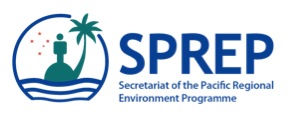The South Pacific Whale Research Consortium, supported by the Secretariat of the Pacific Regional Environment Programme (SPREP), in collaboration with the Scientific Committee of the International Whaling Commission (IWC) have completed the first comprehensive assessment of humpback whales in the Southern Hemisphere.
 12 June 2014: The South Pacific Whale Research Consortium, supported by the Secretariat of the Pacific Regional Environment Programme (SPREP) and in collaboration with the Scientific Committee of the International Whaling Commission (IWC), has completed the first comprehensive assessment of humpback whales in the Southern Hemisphere.
12 June 2014: The South Pacific Whale Research Consortium, supported by the Secretariat of the Pacific Regional Environment Programme (SPREP) and in collaboration with the Scientific Committee of the International Whaling Commission (IWC), has completed the first comprehensive assessment of humpback whales in the Southern Hemisphere.
According to SPREP, Consortium members provided the first estimates of abundance, descriptions of genetic differentiation and documentation of migratory movement for humpback whales throughout eastern Australia, New Caledonia, New Zealand, Tonga, American Samoa and Samoa, the Cook Islands and French Polynesia. The data were fed into a model developed by the Scientific Committee, which shows the whale population’s history of decline and slow recovery from whaling in the 20th century. The research was completed at the May 2014 biennial meeting of the IWC, which took place in Slovenia.
Humpback whales once numbered over 14,000 in Oceania, but declined to less than 1% of this number in 1966. Whales have now increased to about 5,000 individuals, which is 37% of their pre-exploitation population, according to the Committee. Consortium research has also illustrated the genetic isolation among oceanic populations of humpback whales and led to proposals for recognition of three sub-species.
“The Comprehensive Assessment confirmed how close the humpback whale population of Oceania came to extinction,” reported Scott Baker, a Consortium member and Scientific Delegate to the International Whaling Commission, which worked with the Consortium on the assessment. “There may have been fewer than 40 mature females surviving in this vast region after the catastrophic programme of illegal Soviet whaling in the early 1960s.”
Consortium members plan to conduct surveys and analysis to estimate Oceanic humpbacks’ status in 2016 and, with SPREP, collaborate with the governments of the Cook Islands, New Caledonia, Niue, Samoa, Tonga and French Polynesia to implement conservation management policies. [SPREP Press Release] [South Pacific Whale Research Consortium] [IWC 2014 Scientific Committee Report Notification] [IWC 2014 Scientific Committee Report]